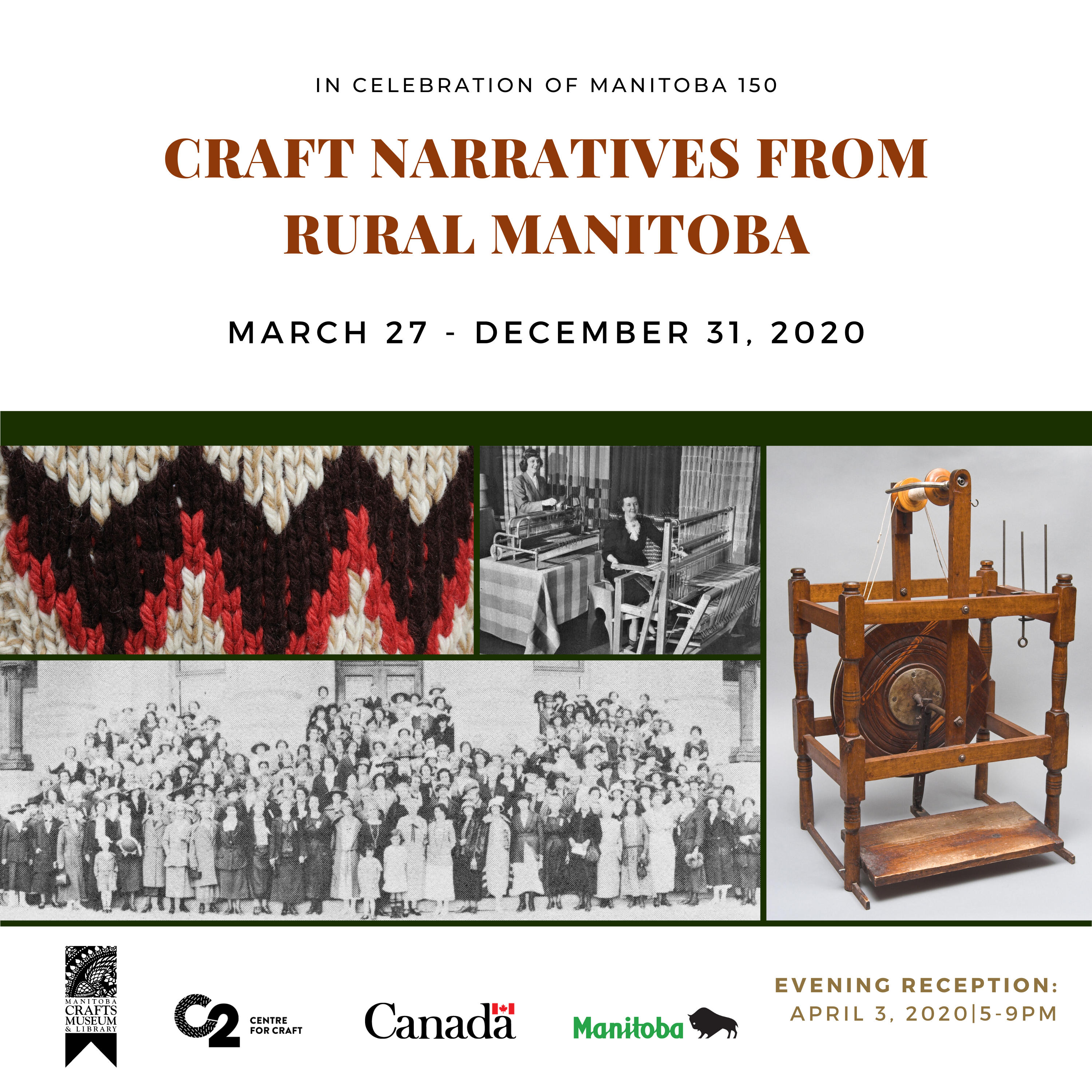For inhabitants of rural Manitoba in the twentieth century, handicrafts were not hobbies but solutions to the difficulties of isolated agriculturalism. Craft skills could provide rural families with economic stability and greater self-sufficiency. Programs promoting craft empowered rural women with the knowledge and skills to improve the standard of living in their households and communities, and provided an avenue into political engagement.
The history of these four organizations in Manitoba, Spin-Well Manufacturing Company, Mary Maxim, the Searle Grain Company Weaving Department, and the Women’s Institutes of Manitoba, illustrates the power of craft to address economic and social issues and illuminates the stories of rural women, to whom craft gave a voice and a community.
Exhibition Tour



